Good Economics For Hard Times
By Abhijit V. Banerjee and Esther Duflo
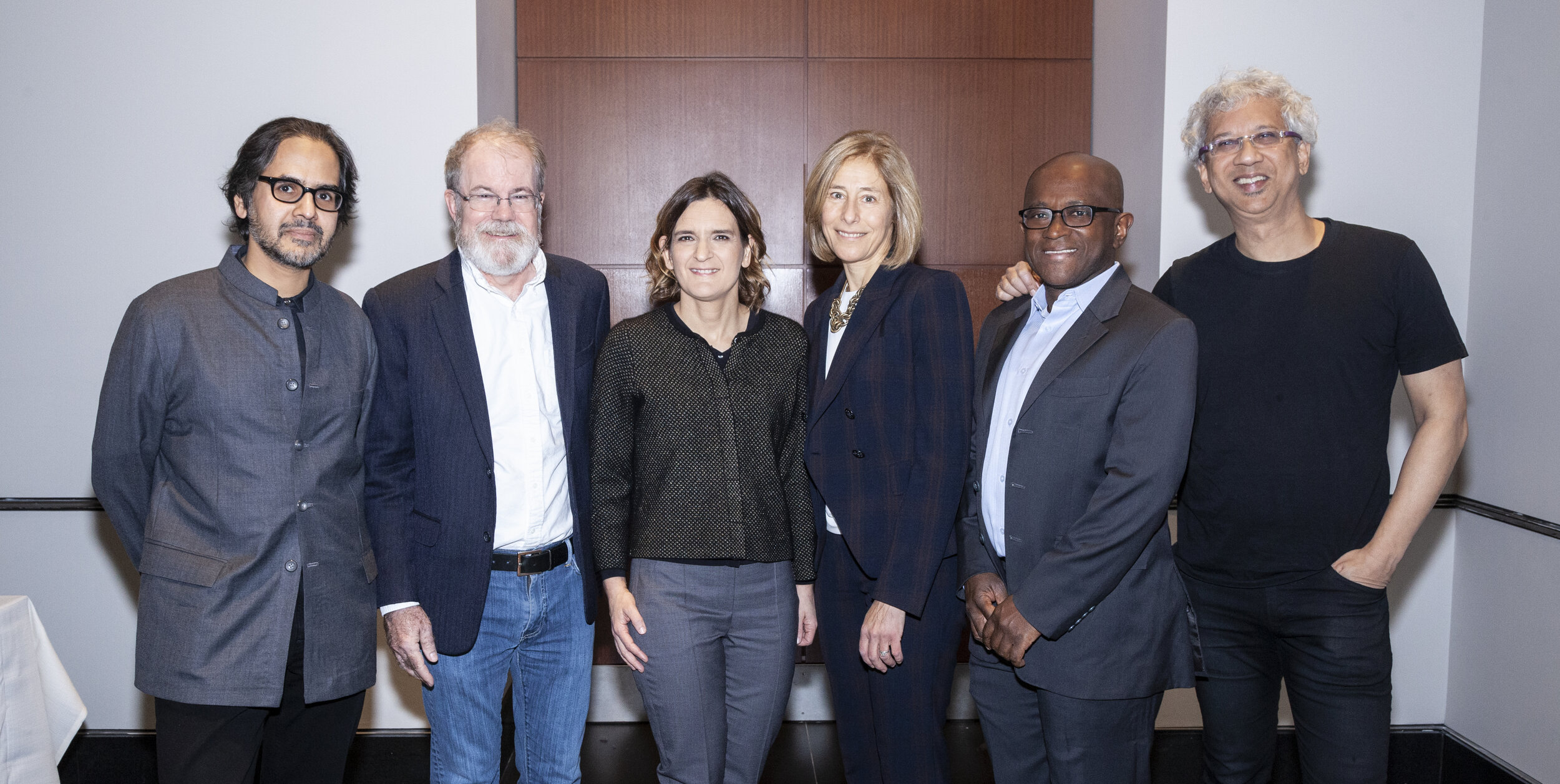

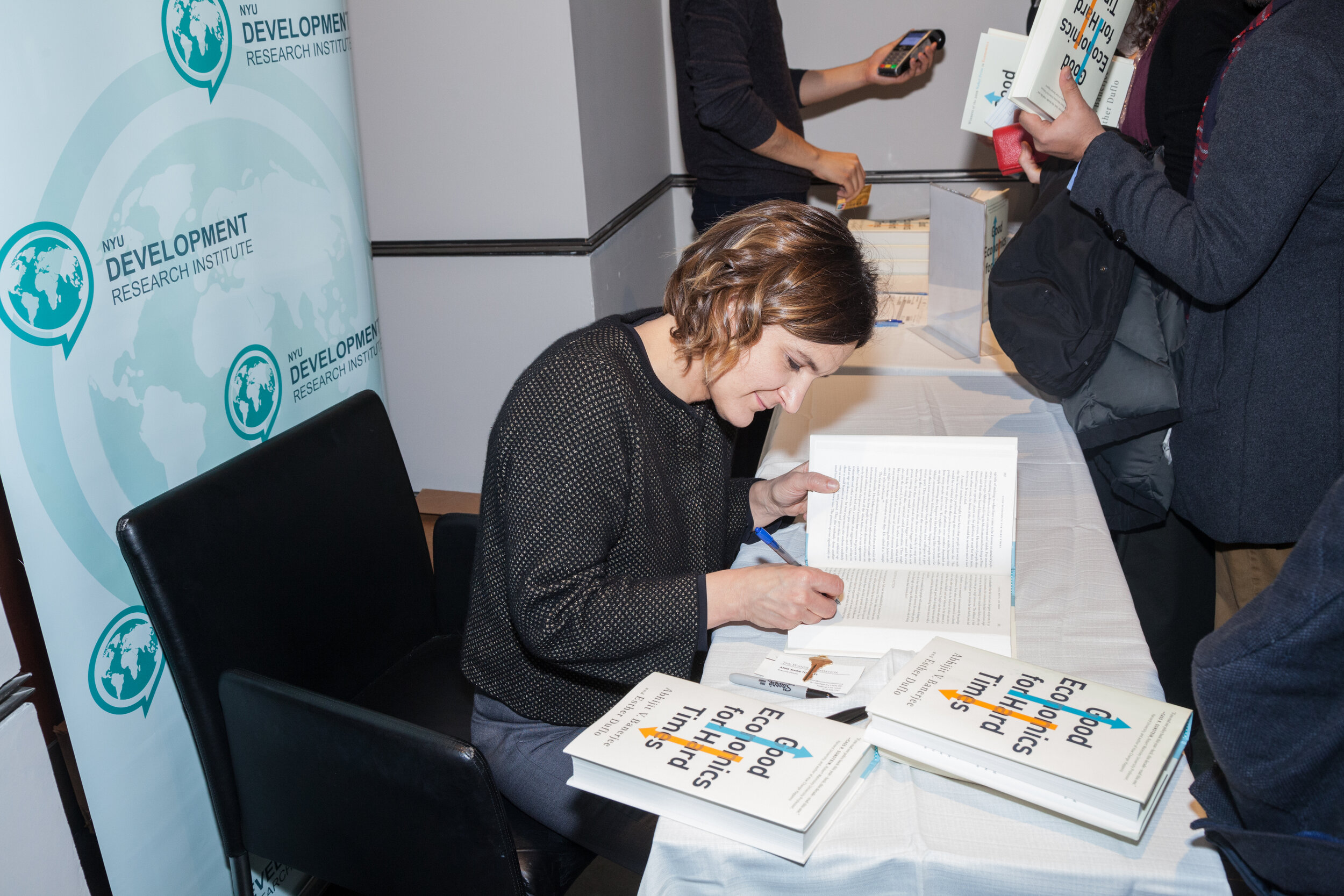



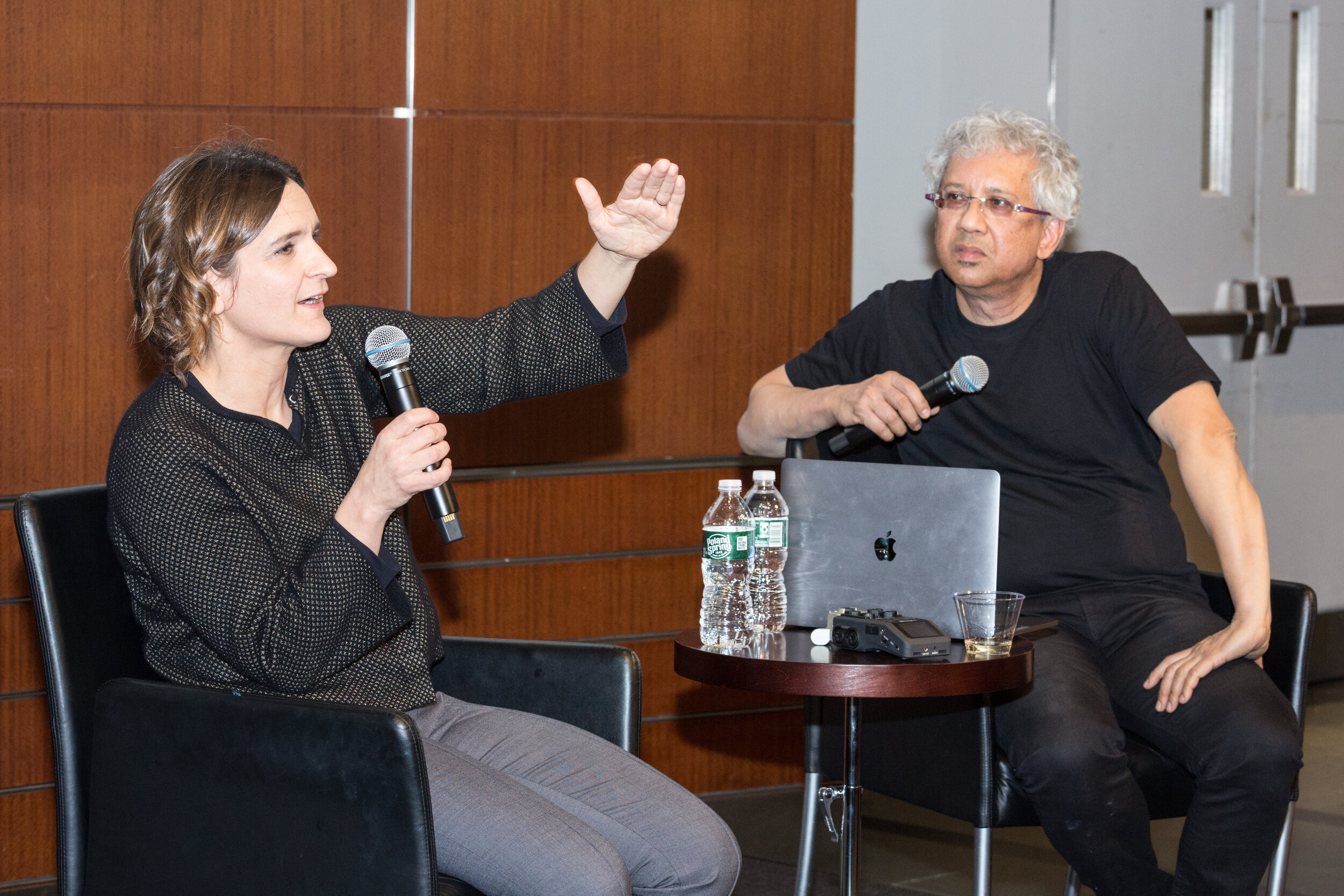
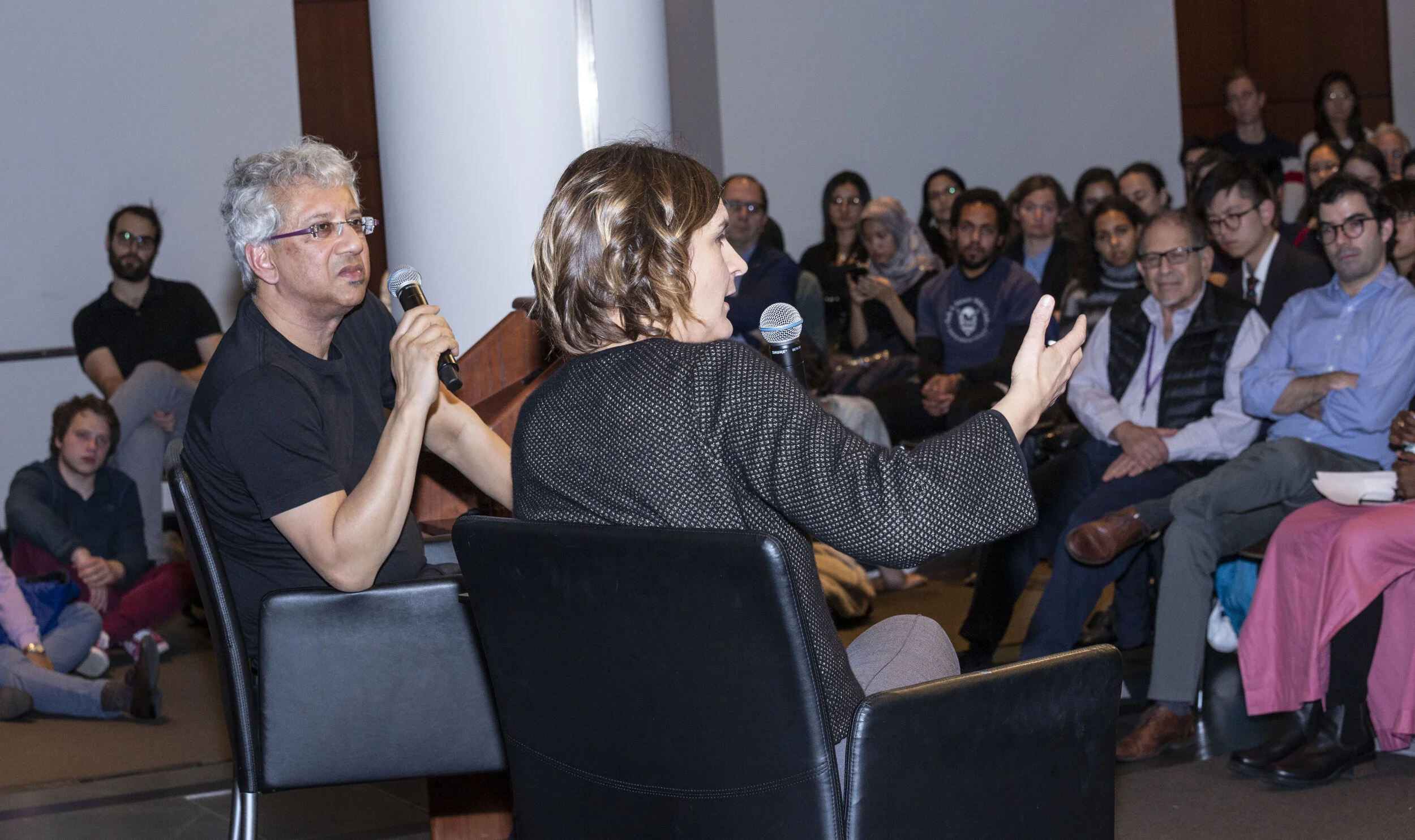
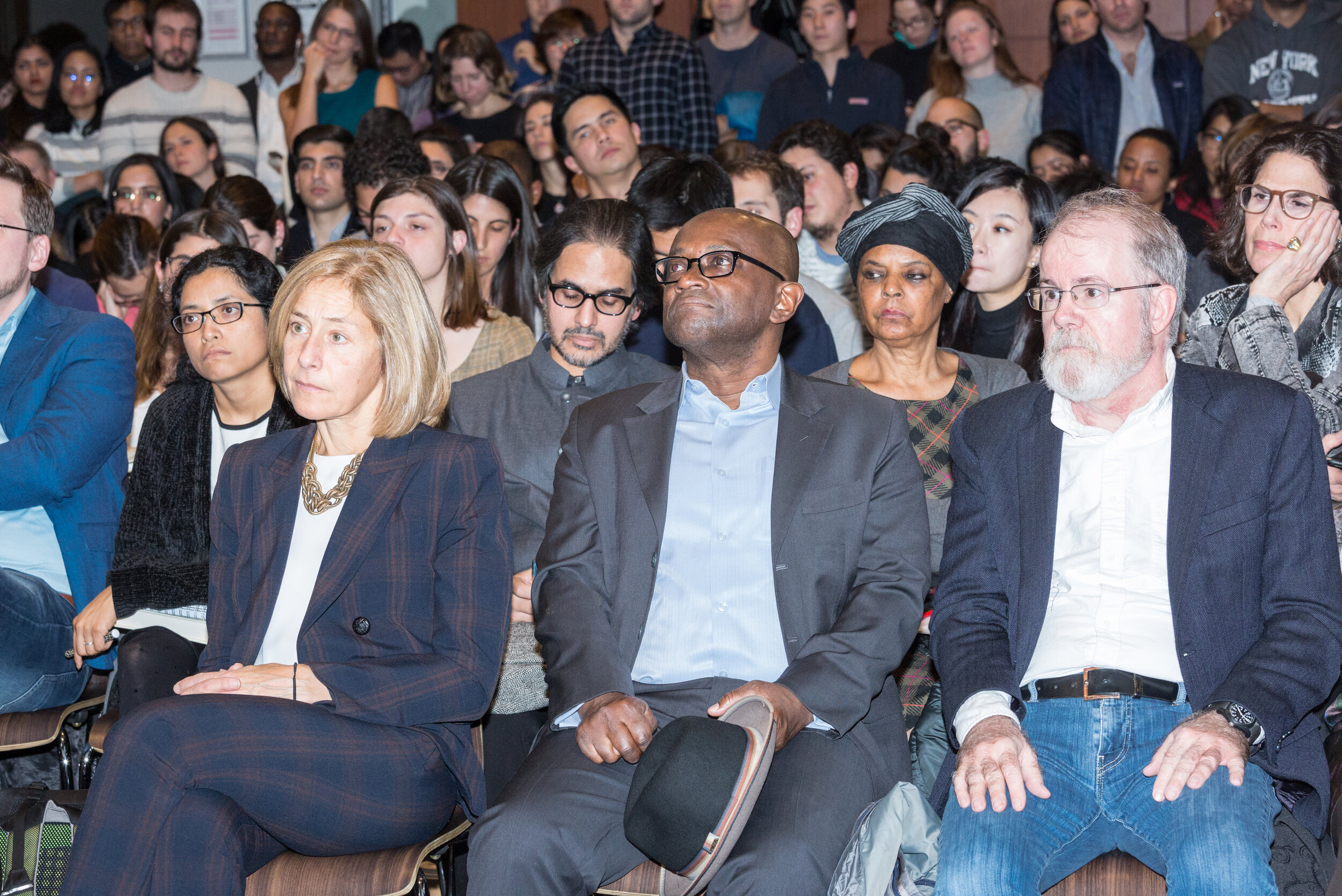
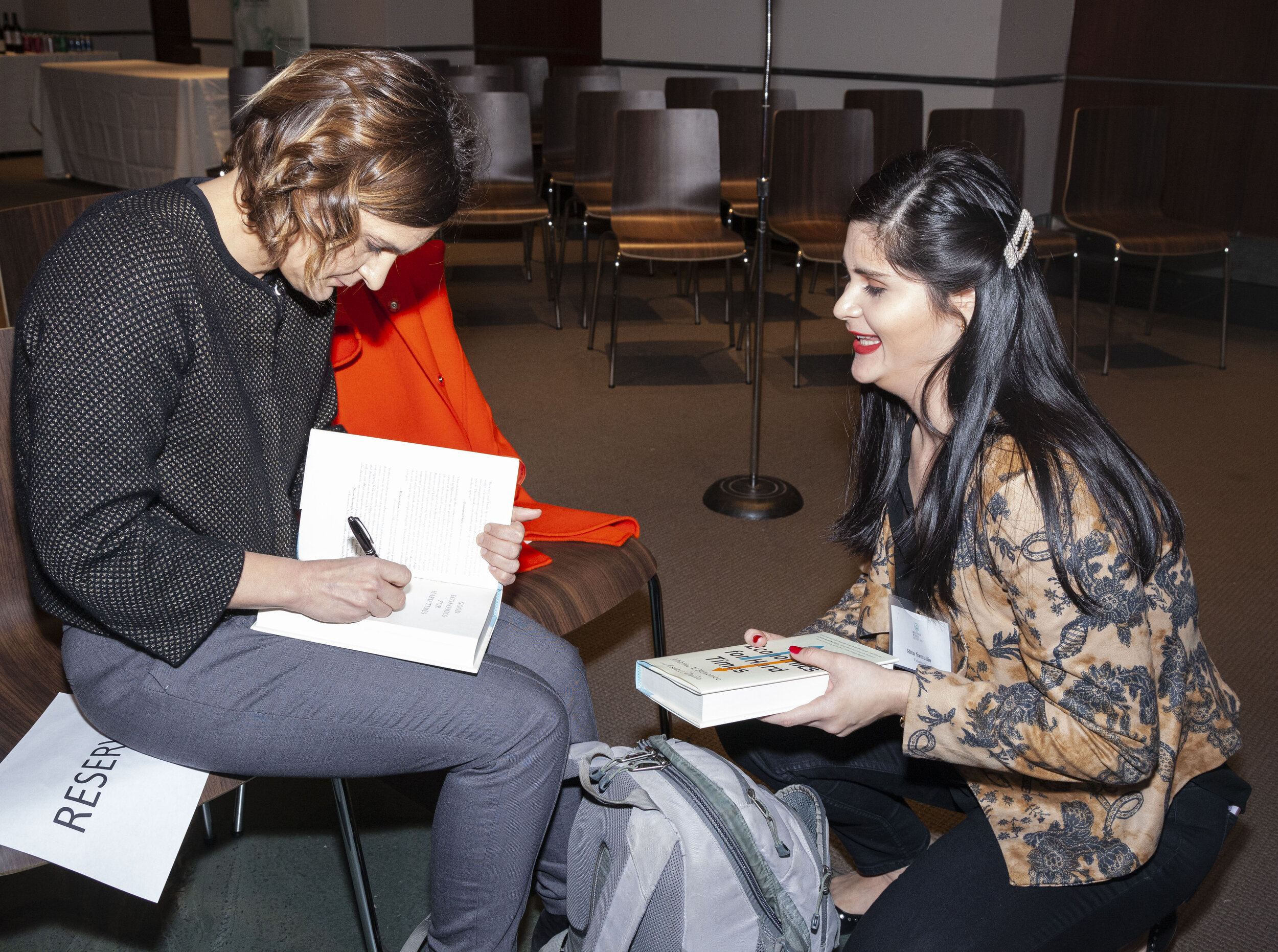
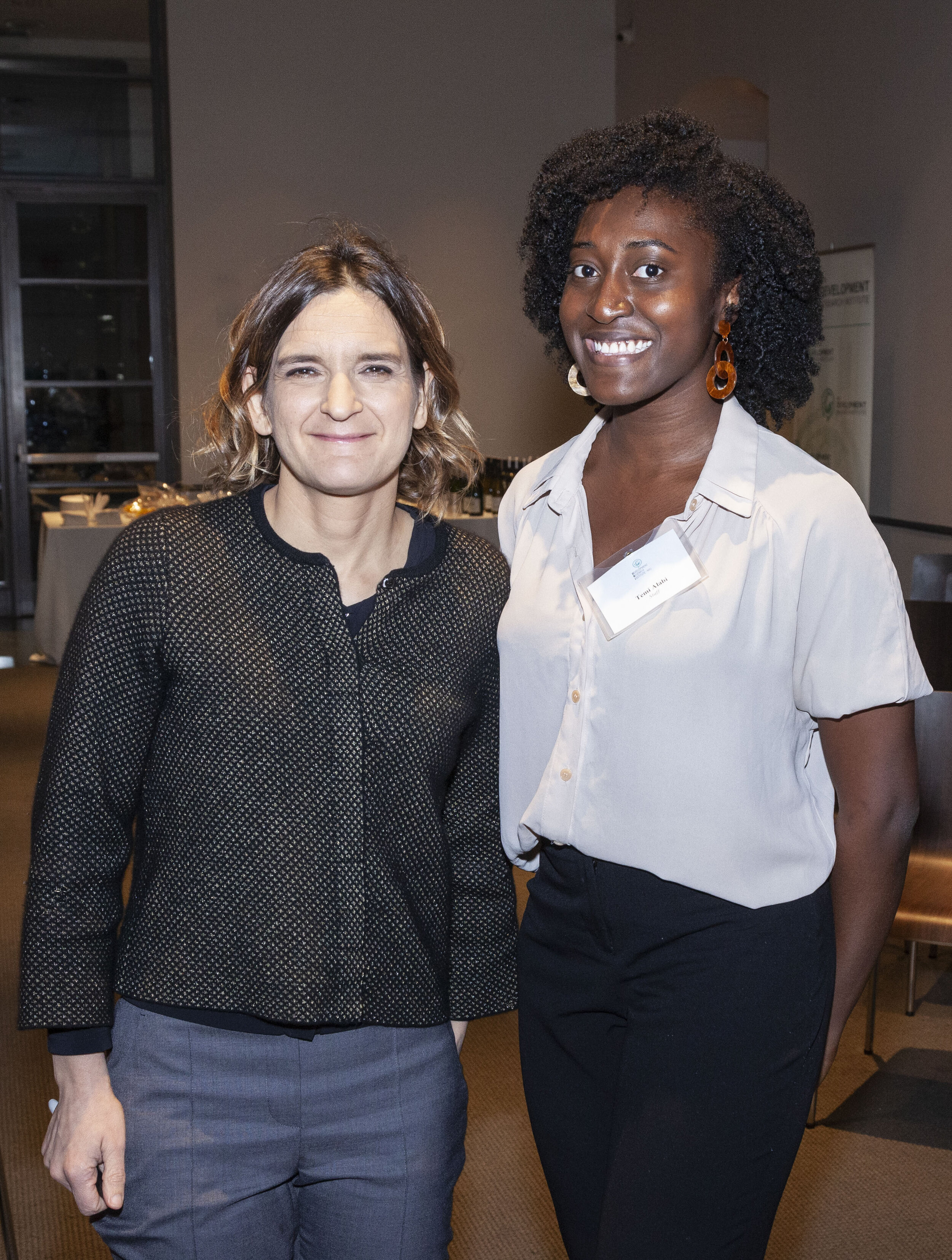
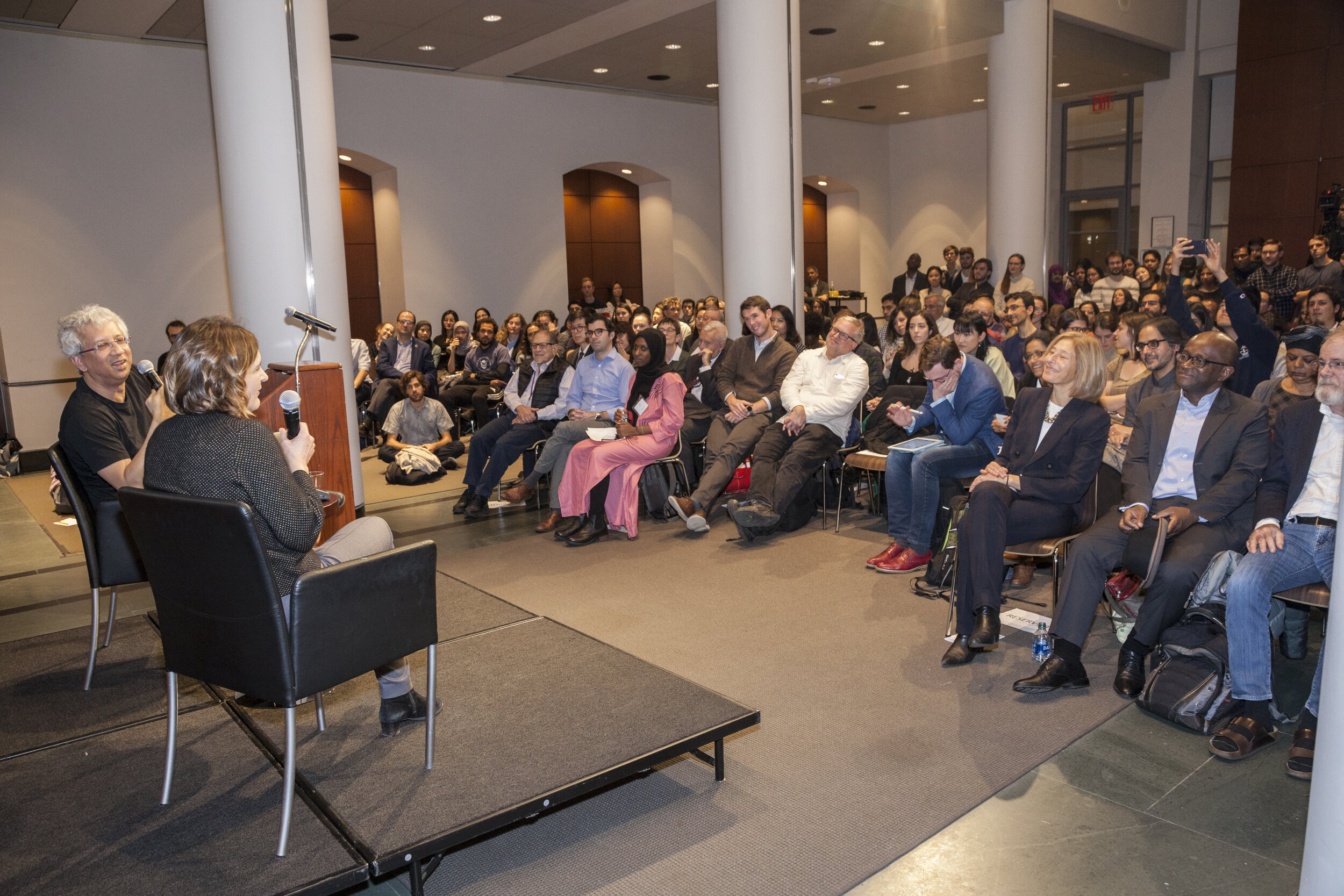
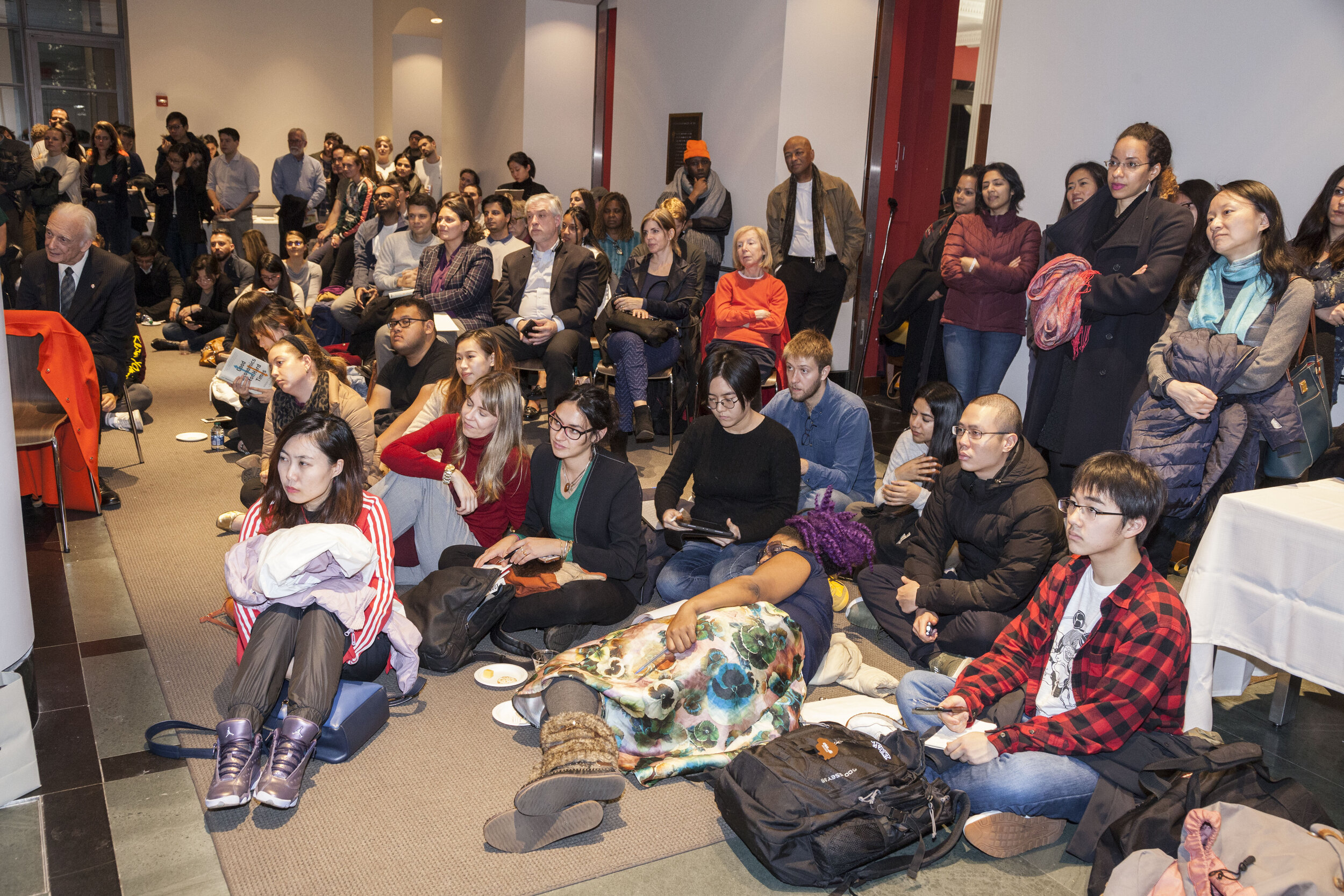
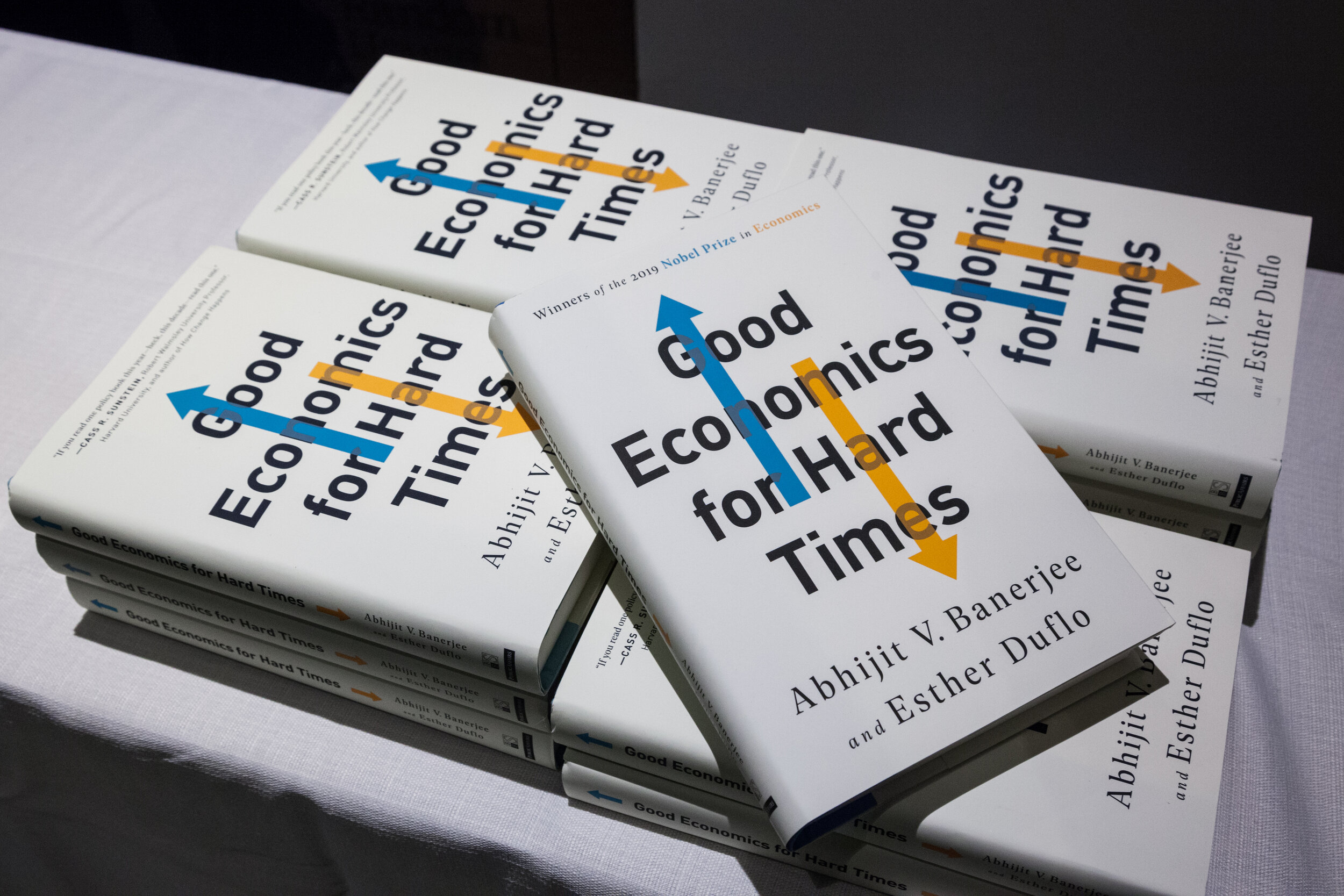

Images from the book launch.
©Goldman: Courtesy of NYU Photo Bureau
Video Courtesy of NYU TV
Overview:
Image of book cover.
Figuring out how to deal with today's critical economic problems is perhaps the great challenge of our time. Much greater than space travel or perhaps even the next revolutionary medical breakthrough, what is at stake is the whole idea of the good life as we have known it. Immigration and inequality, globalization and technological disruption, slowing growth and accelerating climate change—these are sources of great anxiety across the world, from New Delhi and Dakar to Paris and Washington, DC.
In the past, we’ve turned to economists to solve these large-scale problems, but over the past few decades—and certainly since the 2008 financial crisis—the global citizenry have lost their faith in economists. The resources to address these challenges are there, but what we lack are ideas that will help us jump the wall of disagreement and distrust that divides us.
In this revolutionary book, renowned MIT economists Abhijit V. Banerjee and Esther Duflo, the authors of the prize-winning POOR ECONOMCS (2011), take on this challenge, building on cutting-edge research in economics explained with lucidity and grace. Original, provocative, and urgent, GOOD ECONOMICS FOR HARD TIMES makes a persuasive case for intelligent forms of intervention, based on sound research into real-life situations; and a society built on compassion and respect. It shines a light to help us appreciate and understand our precariously balanced world.
In this event, Esther Duflo will introduce "Good Economics for Hard Times", a new book co-authored with Abhijit Banerjee, where they draw on the best recent economics to demonstrate how to think about these problems differently, and present intelligent, daring solutions based on sound research into real-life situations , towards a society built on compassion and respect.
Event Program:
6:00pm - NYU Development Research Institute Welcome Remarks by Rajeev Dehejia
6:10pm - Introduction to Esther Duflo
6:15pm - A Conversation between Debraj Ray and Esther Duflo
6:45pm - Q&A
7:15pm - Networking Reception and Book Signing
About the Authors:
Abhijit V. Banerjee is the Ford Foundation International Professor of Economics at the Massachusetts Institute of Technology. He received his PhD. from Harvard University in 1988. In 2003, he founded the Abdul Latif Jameel Poverty Action Lab (J-PAL), along with Esther Duflo and Sendhil Mullainathan. In 2019, he was awarded the Nobel Prize in Economics, for his experimental approach to alleviating global poverty.
Esther Duflo is the Abdul Latif Jameel Professor of Poverty Alleviation and Development Economics in the Department of Economics at the Massachusetts Institute of Technology. She was educated at the Ecole Normale Supérieure, in Paris, and at MIT. She is the co-author of ‘Good Economics for Hard Times’ with Abhijit V. Banerjee. In 2019, she became the youngest person and the second woman to ever receive the Nobel Prize in Economics.
Book Reviews:
“Not all economists wear ties and think like bankers. In their wonderfully refreshing book, Banerjee and Duflo delve into impressive areas of new research questioning conventional views about issues ranging from trade to top income taxation and mobility, and offer their own powerful vision of how we can grapple with them. A must-read.”
- Thomas Piketty, professor, Paris School of Economics, and author of Capital in the Twenty-first Century
“In Good Economics for Hard Times, Banerjee and Duflo, two of the world’s great economists, parse through what economists have to say about today’s most difficult challenges – immigration, job losses from automation and trade, inequality, tribalism and prejudice, and climate change. The writing is witty and irreverent, always informative but never dull. Banerjee and Duflo are the teachers you always wished for but never had, and this book is an essential guide for the great policy debates of our times.”
- Raghuram Rajan, Katherine Dusak Miller Distinguished Service Professor of Finance at the University of Chicago Booth School of Business, and author of The Third Pillar and Fault Lines
“A magnificent achievement, and the perfect book for our time. Banerjee and Duflo brilliantly illuminate the largest issues of the day, including immigration, trade, climate change, and inequality. If you read one policy book this year -- heck, this decade - read this one.”
- Cass R. Sunstein, Robert Walmsley University Professor, Harvard University, and author, How Change Happens
“One of the things that makes economics interesting and difficult is the need to balance the neat generalities of theory against the enormous variety of deviations from standard assumptions: lags, rigidities, simple inattention, society’s irrepressible tendency to alter what are sometimes thought of as bedrock characteristics of economic behavior. Banerjee and Duflo are masters of this terrain. They have digested hundreds of lab experiments, field experiments, statistical studies and common observation to find regularities and irregularities that shape important patterns of economic behavior and need to be taken into account when we think about central issues of policy analysis. They do this with simple logic and plain English. Their book is as stimulating as it gets.”
- Robert Solow, Nobel prize winner and Emeritus Professor of Economics, Massachusetts Institute of Technology
In this revolutionary book, renowned MIT economists Abhijit V. Banerjee and Esther Duflo, the authors of the prize-winning POOR ECONOMCS (2011), take on this challenge, building on cutting-edge research in economics explained with lucidity and grace. Original, provocative, and urgent, GOOD ECONOMICS FOR HARD TIMES makes a persuasive case for intelligent forms of intervention, based on sound research into real-life situations; and a society built on compassion and respect. It shines a light to help us appreciate and understand our precariously balanced world.


